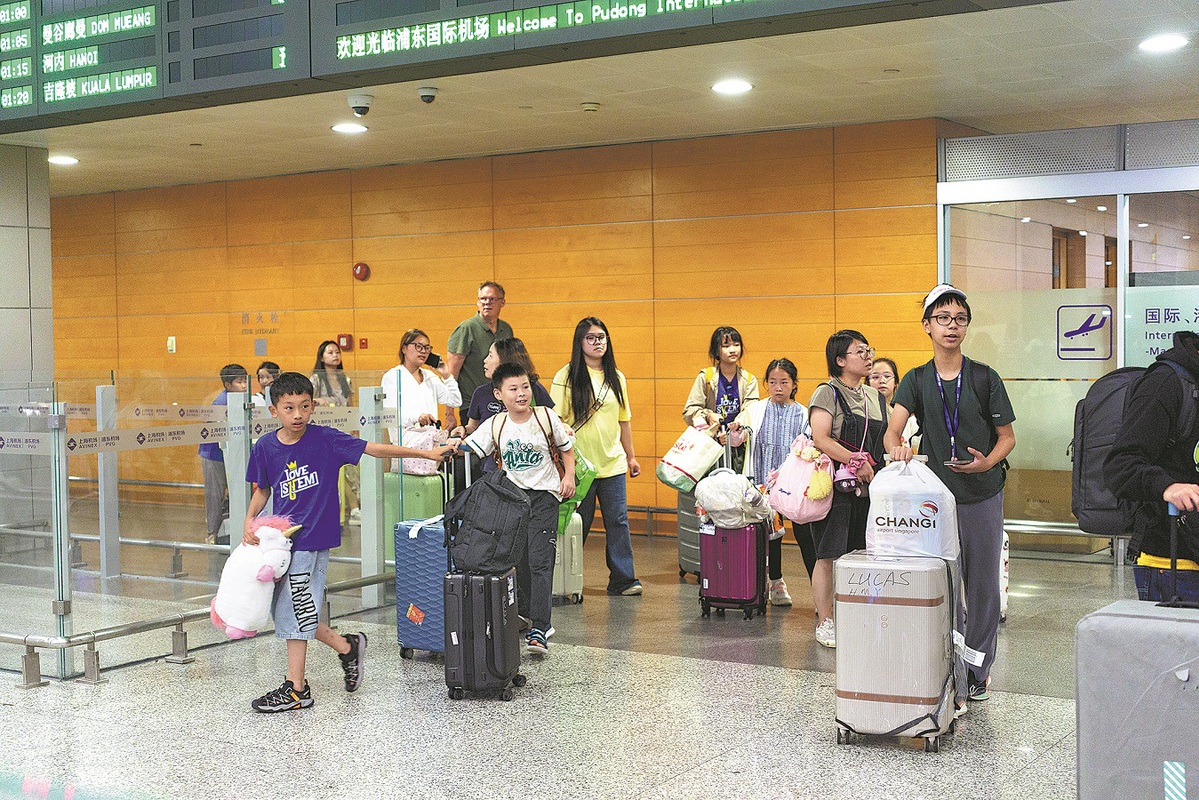Overworked and 'under played'? Ending kids' summertime blues
While many parents believe in holiday study programs, experts argue children need free time to develop


Skating ahead
Mengmeng is in a top class at a prestigious middle school in Shanghai's Pudong New Area, where a competitive academic atmosphere prevails in the classroom.
Her mother Shen said the school does not require students to take extra classes in the summer holiday. On the contrary, teachers suggest the students go on vacation.
"But I think there is no way out but to learn as much as possible. I worry that the subject of physics will be difficult for my child, and I don't have confidence that girls can learn science well," said Shen, who changed her job from being a tour guide to a travel agency administrative position to better support her daughter's educational pursuits.
Mengmeng has grown up under her mother's rigorous approach and seems quite obedient. She has followed a tight summer schedule since she was a small child.
When she was younger, she had more extracurricular classes to attend. But now she has narrowed it down to four: piano, drawing, badminton, and swimming. During elementary school, her summer holiday and weekends were also filled with figure skating and ballet classes.
"The premise of giving children free time is self-discipline, which is hardly seen from children," said Shen. "If left with free time they will resort to using electronic devices with no exceptions," she said, adding that she and her husband, who have no hobbies, spend almost all their salaries on raising their child.
Mengmeng is not opposed to having a full schedule. She said acquiring knowledge of physics is "quite enjoyable", adding that math lessons have improved her problem-solving speed and boosted her grades.
Of all the extracurricular activities, figure skating is her favorite.
"But due to a scheduling conflict and my mother's insistence that playing the piano is elegant for girls, there leaves no time for figure skating," she said, explaining that learning figure skating changed her perception of the sport from terrifying to beautiful. Mengmeng also said she feels a surge of dopamine when she figure skates.
Her mother said: "Everyone understands the importance of ensuring happiness for children, but the overall environment of fierce competition pushes children and parents forward together".
























